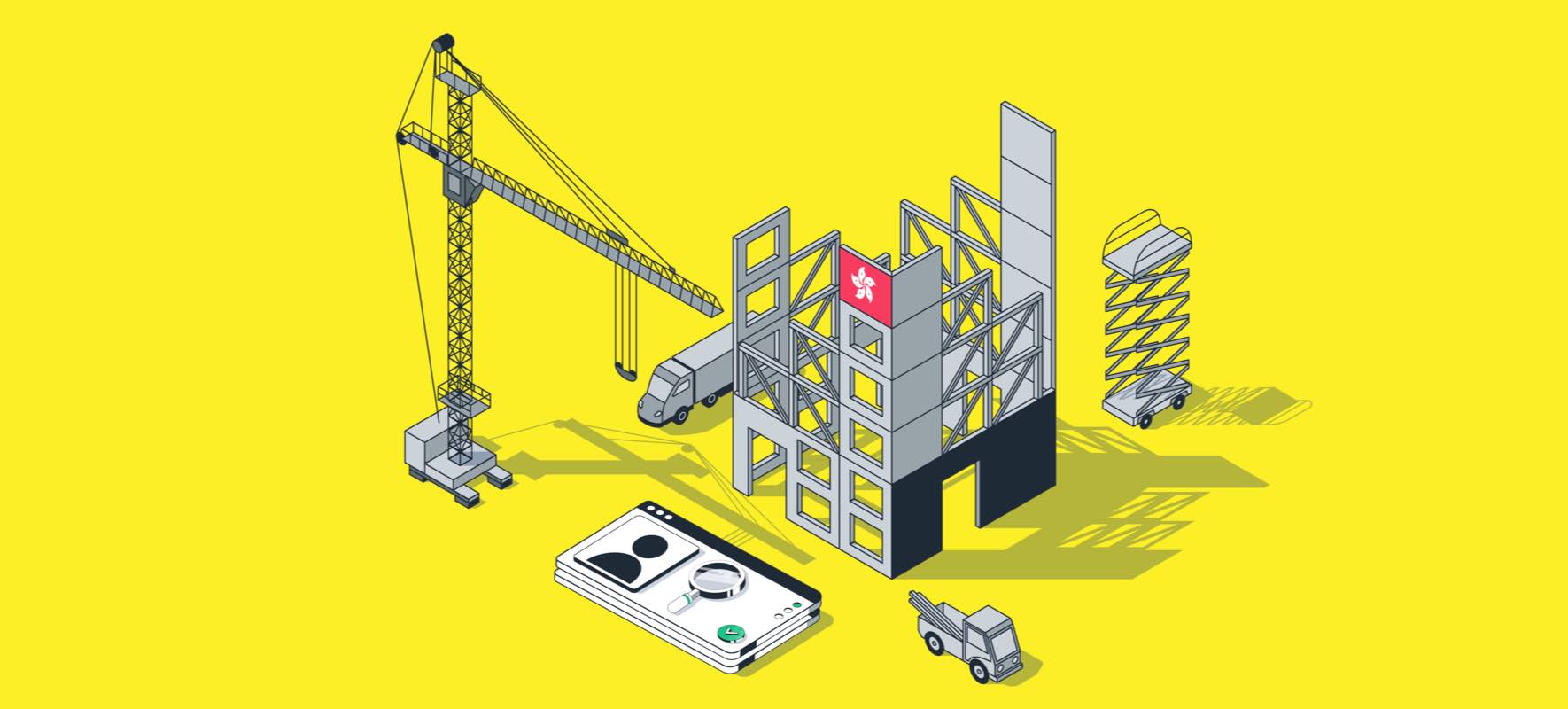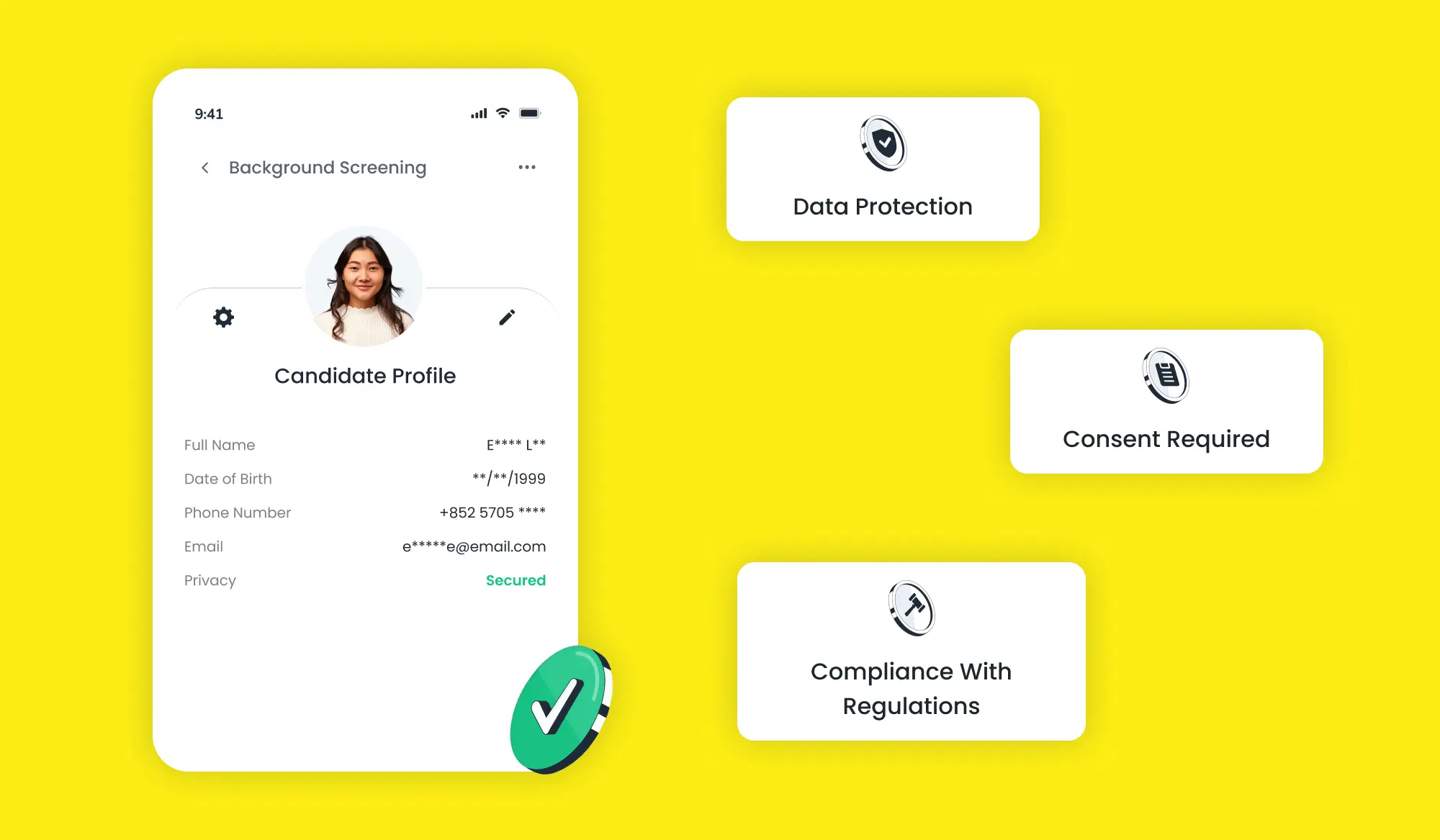Introduction
In Hong Kong’s fast-paced construction industry, background checks are essential for ensuring safety, compliance, and efficiency. From towering skyscrapers to vital infrastructure projects, every role on-site, whether managerial or manual, carries significant responsibility. Yet, amid rising safety incidents and tightening regulations, one factor often overlooked can make or break a project: who you hire. Hiring the wrong individual doesn’t just slow down timelines; it can lead to costly safety violations, project delays, reputational damage, or even legal penalties. That’s why Construction Employee Background Checks are essential to ensure reliability, compliance, and safety on-site. This guide explores how comprehensive background checks in the construction industry safeguard projects, ensure compliance, and help you hire right, stay compliant, and keep your worksites safe and efficient.
Why Construction Background Checks Are Essential for Employers?
Hiring in the construction industry isn’t just about filling roles; it’s about protecting people, projects, and reputations. In a high-risk, fast-moving environment, Background Checks for Construction ensure your workforce is trustworthy and qualified. Here’s why they matter:
Safety Comes First, Always: Construction sites are high-risk environments. Unvetted hires can put co-workers and your entire project at risk.
Compliance is the Law: Government bodies like the Buildings Department, Construction Industry Council (CIC), and the Labour Department enforce strict safety and labour laws. Non-compliance can lead to site shutdowns or fines.
Delays Cost Money: Hiring unreliable or underqualified workers leads to missed deadlines and budget overruns.
Protect Your Reputation: Clients trust companies that take hiring seriously. A vetted team means fewer site incidents and stronger credibility.
Prevent Internal Risks: Supervisors or procurement staff handle assets and budgets. Screening for past fraud, financial issues, or legal trouble helps protect your operations.
What to Include in a Construction Employee Background Check?
A strong Background Check in the Construction Industry roles goes beyond ticking boxes. In this sector, where safety, compliance, and project integrity are everything, the details truly matter. A thorough Background Verification for the Construction Industry should go beyond standard hiring checks. Different roles carry different levels of risk. What you screen for in a site worker may differ from what’s needed for a project manager, crane operator, or site engineer. That’s why background checks should be tailored to the responsibilities of the role. Whether you’re hiring frontline workers, technical specialists, or supervisory staff, each level demands its own level of scrutiny. Here’s what to include in comprehensive Employment Background Checks in the Construction Sector:
Identity & Right-to-Work Verification
What it is:
Confirming the candidate’s identity and legal eligibility to work in Hong Kong.
Why it matters:
With increasing inspections by immigration authorities, hiring workers without proper documentation can result in serious legal trouble. This step ensures you’re hiring someone legally, reducing compliance risks.
Checks include:
- Hong Kong Identity Card (HKID) or a valid passport
- Employment visa or work permit status (for non-permanent residents)
- Cross-checks with Immigration Department records (where applicable)
Employment History Verification
What it is:
Verifying where the candidate has worked, in what roles, and for how long.
Why it matters:
Experience on paper doesn’t always reflect reality. This check ensures the candidate has actually done the kind of work your project requires, whether it’s structural work, site management, or equipment handling.
Checks include:
- Previous employers and job roles
- Duration of employment
- Nature of past projects
- Reference calls with site supervisors or HR
Criminal Record Checks
What it is:
Looking into any history of criminal activity, locally and, if applicable, internationally.
Why it matters:
You need to know if a candidate poses a potential risk to your team, your clients, or your equipment. While some offenses may not be disqualifying, others, like violence, theft, or substance abuse, can be serious red flags.
Checks include:
- Hong Kong Police criminal conviction record (with consent)
- International checks for foreign hires or expats
- Screening for offenses related to safety, theft, violence, or fraud
Civil Litigation & Bankruptcy Search
What it is:
Checking for financial or legal trouble in a candidate’s background.
Why it matters:
Especially important for leadership, supervisory, or procurement roles. A history of financial mismanagement, fraud, or civil disputes can be a warning sign.
Checks include:
- Bankruptcy records (via the Official Receiver’s Office)
- Civil litigation records (Labour Tribunal, District Court, High Court)
- Contract dispute history
Reference Checks
What it is:
Speaking directly with former employers or supervisors to get real feedback.
Why it matters:
Resumes can be polished. References provide real-world insights into how someone performs on site, how they follow safety protocols, handle stress, and work with others
Checks include:
- Behavior and professionalism on-site
- Attendance, punctuality, and reliability
- Past safety incidents or disciplinary issues
- Overall performance and attitude
For the construction industry, where the risks are high and expectations higher, a thorough, role-specific check isn’t just helpful, it’s essential. These are some of the basic background checks commonly used in the industry, but they can, and should, be expanded depending on the specific job title, seniority level, and your company’s internal requirements.
Legal Considerations for Background Screening in the Construction Industry in Hong Kong
Conducting background checks in construction industry roles requires strict adherence to Hong Kong’s employment and privacy laws:
Personal Data (Privacy) Ordinance (PDPO) Compliance: Under the PDPO, construction companies must obtain explicit, informed consent from candidates before collecting any personal data, including identity information, criminal records, or medical details. The collected data should be used only for legitimate employment purposes such as safety compliance or role suitability. Employers must ensure the data is securely stored to prevent unauthorized access, especially given the multiple contractors often involved in construction projects. Personal data should also be retained only as long as necessary and disposed of securely once it’s no longer needed.
Right-to-Work Verification & Immigration Compliance: Hong Kong’s Immigration Department regularly inspects construction sites to prevent illegal employment. It is mandatory to verify that all workers, including subcontractors, hold valid work authorization, such as Hong Kong Identity Cards or work visas. Employing illegal workers can lead to substantial fines and possible imprisonment for employers. Keeping up-to-date records of legal work status helps avoid costly site shutdowns and reputational damage.
Employment and Anti-Discrimination Laws: Background checks for the construction industry must comply with Hong Kong’s anti-discrimination laws. Employers should avoid making hiring decisions based on irrelevant factors like race, gender, disability, or nationality. For example, medical and criminal checks should only be applied when relevant to the specific job, such as physical fitness tests for laborers or criminal checks for site supervisors managing safety and assets. This helps ensure fair treatment and reduces legal risks from discrimination claims.
Criminal Record Checks: Handling & Limitations: Since Hong Kong does not provide direct access to criminal checks, background screening agencies often assist with these checks after candidate consent. Employers must use criminal information judiciously and proportionately, considering the nature of past offenses in relation to job responsibilities. For example, a past fraud conviction may disqualify a candidate for financial oversight roles but not necessarily for general labor positions. It is also good practice to give candidates the chance to explain any issues found during screening before final hiring decisions.
Verification of Licenses and Certifications: Many construction roles require specific licenses and certificates, such as the Construction Industry Council (CIC) Safety Card or equipment operation permits. Verifying these credentials is legally necessary to meet regulatory and insurance requirements and to maintain workplace safety. Employing workers with forged or expired licenses can expose the company to fines, insurance claims denial, and safety hazards. A thorough verification process helps protect the company and workers alike.
Conclusion
Every construction project depends on the skills and reliability of the people behind it, from crane operators to project engineers. Skipping background checks in the construction industry is like building on shaky ground, risking safety, quality, and timelines. In Hong Kong’s tightly regulated construction sector, Construction Employee Background Checks and Background Checks for Construction positions are not just best practices; they are essential. By verifying credentials, legal work status, and qualifications, you protect your company from costly incidents and build a reliable workforce. Strong Background Screening in the Construction Industry ensures safer sites, smoother operations, and lasting client trust. When every hire is vetted properly, you’re building a solid foundation for long-term success.
Need Trusted Screening for Construction Workers?
Protect your teams and projects with reliable, verified hiring to ensure a safe, productive worksite.













